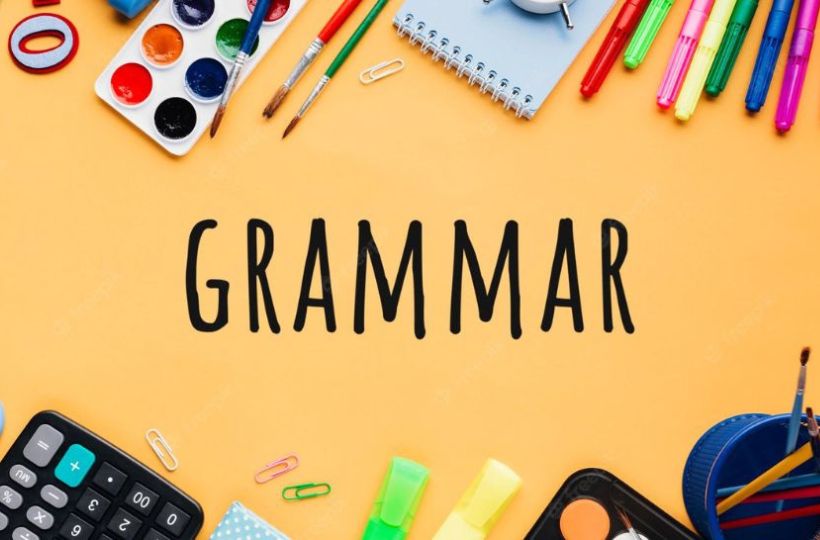
Connect on WhatsApp, 100% Confidential Connect Now!

Grammar is a fundamental part of the language; all students must understand its rules and conventions. Whether you're writing an essay for school or simply trying to communicate more effectively, understanding grammar can help you express yourself clearly and confidently. This guide will look at the different types of nouns, verbs, adjectives, and adverbs; how to correctly use punctuation; the differences between British and Australian English; and some important tips for using correct grammar. So let's get started!
Grammar is the basic foundation of any language. It is the system and structure that gives a language its shape.
Grammar consists of four main areas:
Grammar is an important part of any language as it provides the structure for understanding and communicating. Without grammar, a language would be difficult to learn and understand.
Punctuation is vital in ensuring that your writing is clear and easy to understand.
The main rules of punctuation are:
- At the end of a phrase, use a full stop (.), question mark (?) or exclamation point (!).
- To distinguish items in a list or link two brief statements, use a comma (,).
- Use quotation marks ("") around the words that someone says.
- Capitalize proper nouns and the first word of each sentence (names of people, places or things).
Following these basic rules will make your writing much easier to read and understand.
One common grammar mistake that Australian students make is using the word 'you' instead of 'your.' For example, saying, 'Can you please hand in your homework?' Instead of 'Can you, please hand in your homework?' Another common mistake is using the wrong form of the verb 'to be.' For example, instead of "I'm going to the shops," say "I'm going to the shops."
Other mistakes include:
-Using adjectives instead of adverbs, e.g., She runs quickly instead of She ran quickly
-Not using the correct articles, e.g., an apple instead of an apple
-Misplacing commas, e.g., We went to Disneyland, and it was fun instead of We went to Disneyland, and it was fun
-Making verbs agree with the subject, e.g., He has a pet dog instead of He has a pet dog
To avoid making these mistakes, it is essential to proofread your work carefully before handing it in. If you are unsure about whether something is correct, ask a teacher or tutor for help.
Using proper grammar is essential for both writing and speaking. There are a few simple rules to follow to use grammar correctly.
When writing, Never forget to explain in whole sentences. A full sentence represents a complete notion and includes a subject and verb. An incomplete sentence or fragment is missing one of these components and cannot stand alone as a complete thought.
In addition to using complete sentences, be sure to use proper punctuation. Both denote a sentence's conclusion and divide it into pieces, and sentences utilize punctuation marks. The period, question mark, and exclamation point are the three most often used punctuation marks.
It is also important to use proper capitalization when writing. All proper nouns and the first word in a sentence should be capitalized (names of people, places, things, etc.). In addition, be sure to capitalize the pronoun I and the interjection OOPS!
When speaking, always use clear and concise language. Don't use jargon or terminology that your audience might not comprehend. Make sure you speak clearly and clearly articulate your words.
Following these simple tips ensures that you are using proper grammar in your writing and speaking.
If you're looking to improve your grammar, plenty of resources are available. Here are a few suggestions:
- The Grammarly app is a great way to catch errors and learn more about proper grammar usage.
- For a more comprehensive guide, check out the Australian Government's Style Manual.
- If you want to focus on specific areas, many books, and online courses are available on punctuation, sentence structure, and vocabulary.
No matter your level, there are always ways to improve your grammar skills. With a little effort, you can ensure that your writing is clear, concise, and error-free.
Conclusion
Grammar is an essential skill for any student, no matter what part of the world they may be from. We hope this guide has provided helpful information to Australian students looking to improve their grammar skills. Whether you are studying English literature or another subject, having a solid grasp of grammar will help you excel in your studies and understand the language better. With practice, you can become a master at writing and speak with perfect grammar!
Grammar can seem difficult to learn at first, but with a little practice and effort, it will become easier. Make sure to take the time to review the topics that you find most challenging and practice them until they become second nature. It is also important to remember that grammar rules are not set in stone; they are often open to interpretation and can be adapted depending on context. Consult an expert if you are unsure which usage is correct. Finally, don't forget to have fun when learning grammar - it can be an enjoyable experience!
Eager to know what our students have to tell about us? Do not accept our phrase for it - discover it directly from the source!
View All